
“Being Dumb Is A Disability”: Woman Cuts Parents Off After They Leave Everything To “Disabled” Son
Looking at the bigger picture, no one benefits from parental favoritism. While the favored child may enjoy the special treatment, the bias can only strain the family dynamic, especially when it is blatant.
This is the case in today’s story. A woman grew fed up with her parents’ outright partiality toward her older brother because of his “below-average IQ.” It led her to cut off her elderly mom and dad, both of whom had been in poor health.
The author now wonders if she was too harsh and asks the AITAH community for answers. Scroll down for the entire text.
Parental favoritism breeds resentment
Image credits: shurkin_son / Freepik (not the actual photo)
A woman is cutting off her parents for showing blatant bias toward her older brother because he has a “below-average IQ”
Image credits: pvproductions / Freepik (not the actual photo)
It has since caused tension and hostility within the family
Image credits: Away_Jaguar_2813
The effects of favoritism are longer-lasting and more damaging than perceived
Image credits: prostooleh / Freepik (not the actual photo)
Apart from the mental struggles that the unfavored child may endure, the effects of these displays of blatant biases have long-term effects that may be more damaging.
According to licensed professional counselor and clinical social worker Mallory Williams, LCSW, individuals who have endured favoritism their entire lives may also adopt a defeatist attitude.
In an interview with Baton Rouge Parents, Williams explained that unfavored children may give up quickly because they feel like they are never worthy of the same attention and love. The favored child won’t have it easy later in life, either. According to Williams, they tend to grow up having difficulty dealing with failure.
“They often feel so much pressure to keep up their star performance that they feel that there is no room for mistakes,” Williams says, adding that they may find it challenging to repair the relationship with the unfavored sibling.
The parents who played favorites may also be affected. According to Purdue University sociology professor Jill Suitor, an ill mother who received care from their least favorite child may experience a “substantially lower” physiological well-being.
“Now, put this together with the fact that most adult children have very inaccurate perceptions of their mother’s preferences, and you can see where the risk for mismatches is high,” Suitor stated in an interview with the university publication.
The author may have been deeply affected by her parents’ blatant bias toward her brother. Because of its long-term effects, this came to a head years later. Unfortunately, it happened at a time when both her parents were in poor health and needed extra attention.
Establishing a relationship with the favored child may be the next best option
Image credits: Image by Freepik (not the actual photo)
Unless the parents address the biases they showed and apologize for it, the least favored child may continue to carry that resentment through adulthood. However, at the very least, they can establish a healthy relationship with their favored sibling.
In an article for Love to Know, licensed clinical psychologist Dr. Mona Bapat suggests being honest and open as a start.
“Tell your sibling how you feel. For example, ‘I feel sad that we have become so distant,’” she wrote.
According to Dr. Bapat, making an effort to reach out and bridge the gap also helps. It could be through shared hobbies or casual hangouts to create a bonding experience.
But if none of those work, Dr. Bapat says therapy is always an option. A qualified professional may help guide the steps to heal the underlying traumas.
The author could explore this, especially since she says she has no issue with her brother. As for her parents, mending those bridges may take a while unless all parties involved do their part in moving forward.
The woman provided more information by answering some questions
Readers didn’t hold back on their comments
Some sided with the author
Others faulted all parties involved
While a few called her out for being “bitter” and “a bit money hungry”
There were those who shared similar experiences
Poll Question
Thanks! Check out the results:
This woman needs to encourage her parents to appoint a professional trustee/executor/power of attorney if she's unwilling to do it. She also needs to seriously talk to them about getting legal advice for creating a trust and appointing a trustee, guardian or conservator for her brother. He doesn't sound like he would be capable of managing an inheritance, and he may need some degree of supervision to make sure he has health insurance, housing, etc. She clearly doesn't intend to be responsible for him, but what she sees as "failure to launch" may be someone who needs support with complex tasks. When one child in a family has a disability, it's not uncommon for any inheritance to be placed in trust to ensure their care. This doesn't sound like favoritism, it sounds like parents worrying about a disabled child who has been depending on them, and will struggle when they're gone.
This woman needs to encourage her parents to appoint a professional trustee/executor/power of attorney if she's unwilling to do it. She also needs to seriously talk to them about getting legal advice for creating a trust and appointing a trustee, guardian or conservator for her brother. He doesn't sound like he would be capable of managing an inheritance, and he may need some degree of supervision to make sure he has health insurance, housing, etc. She clearly doesn't intend to be responsible for him, but what she sees as "failure to launch" may be someone who needs support with complex tasks. When one child in a family has a disability, it's not uncommon for any inheritance to be placed in trust to ensure their care. This doesn't sound like favoritism, it sounds like parents worrying about a disabled child who has been depending on them, and will struggle when they're gone.

 Dark Mode
Dark Mode 

 No fees, cancel anytime
No fees, cancel anytime 



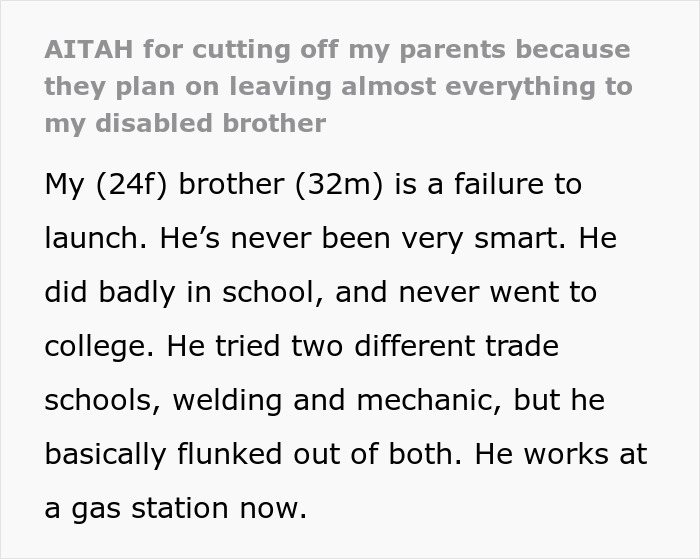
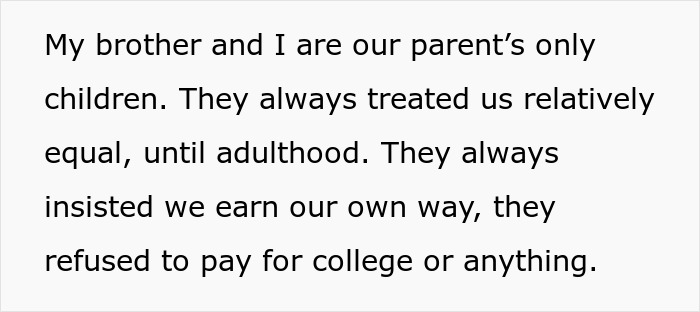
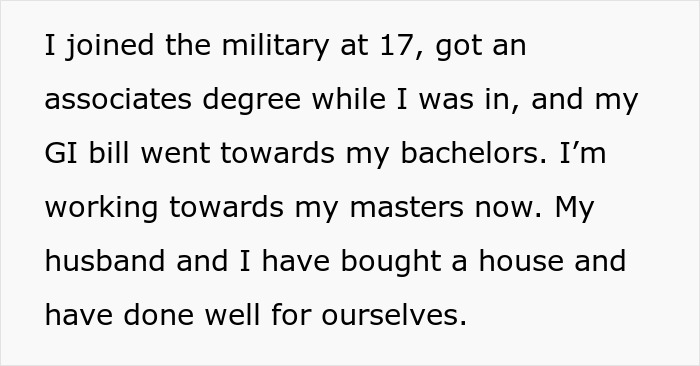
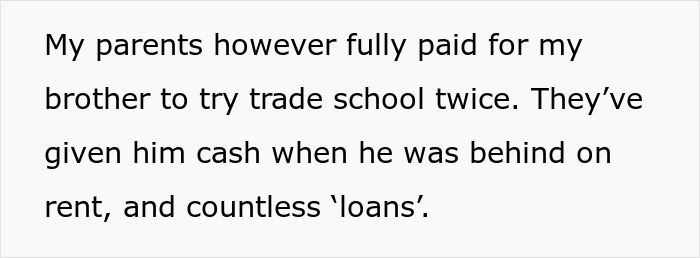
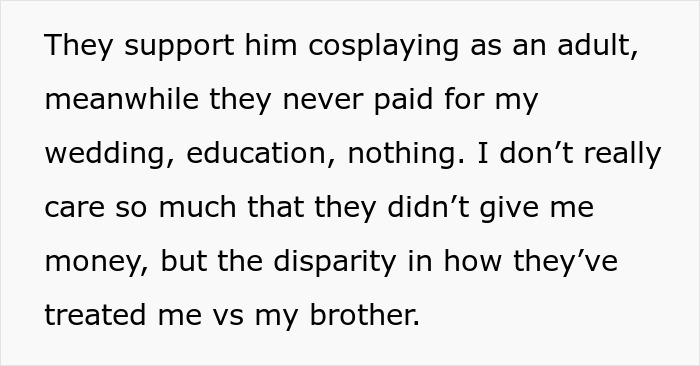
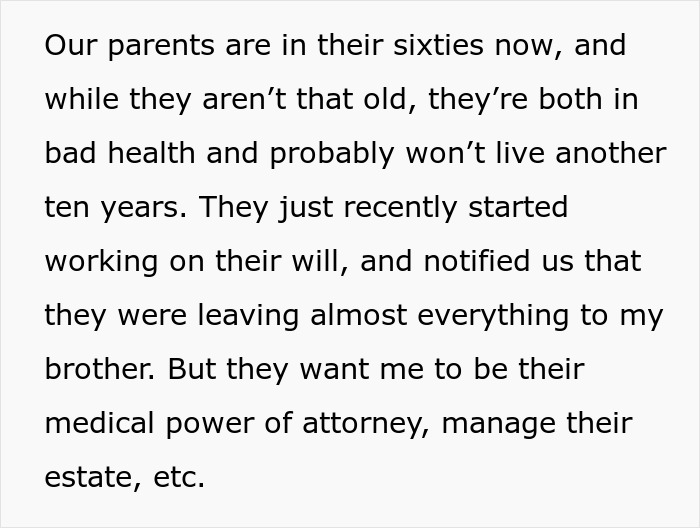
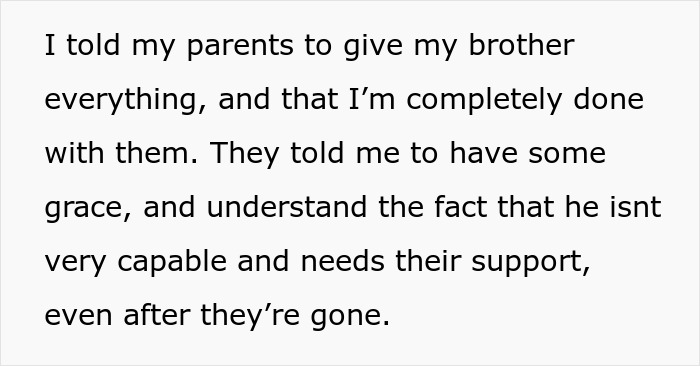
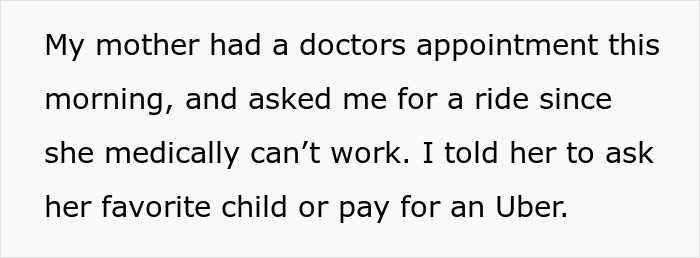


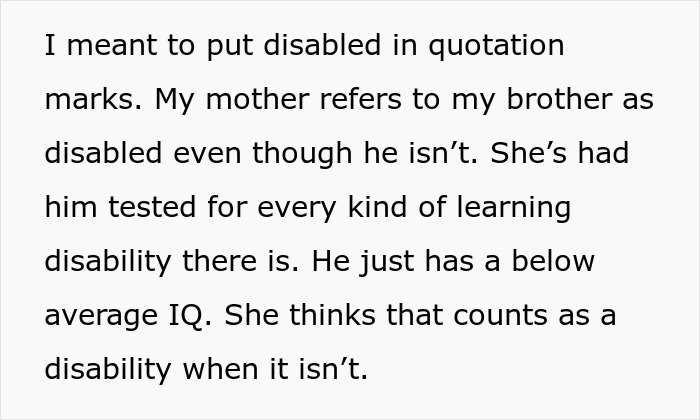


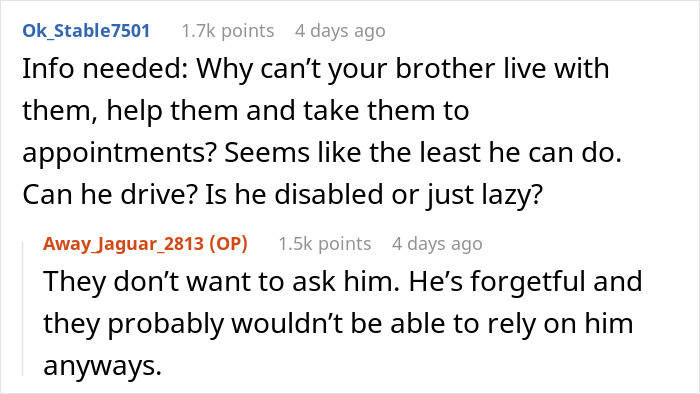
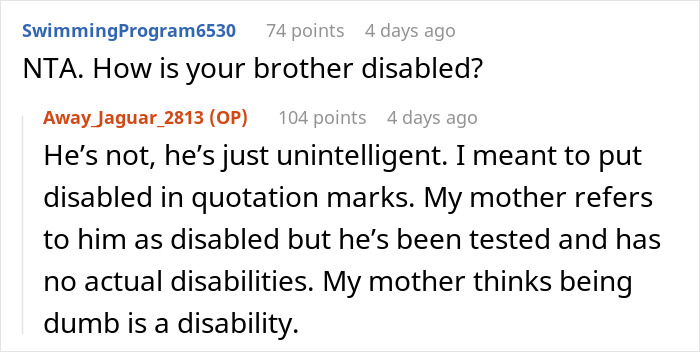
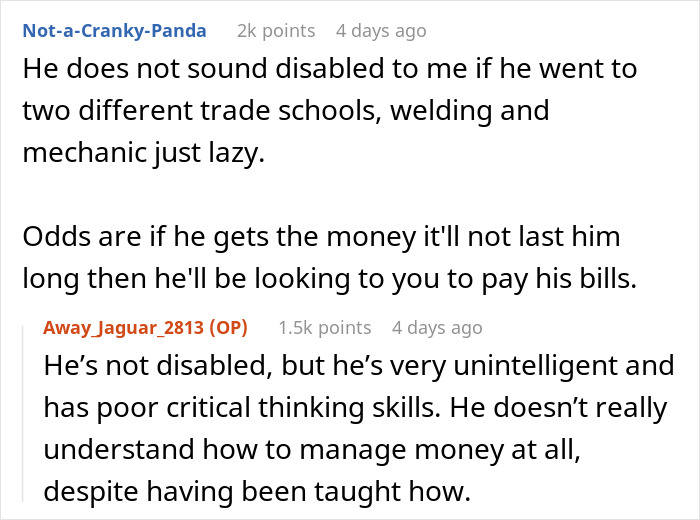

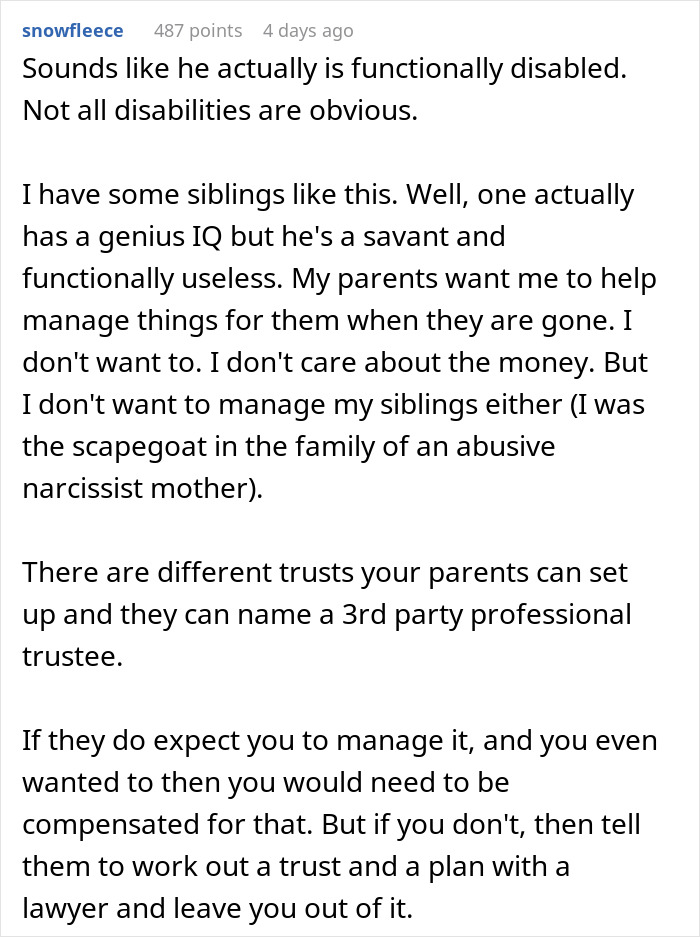




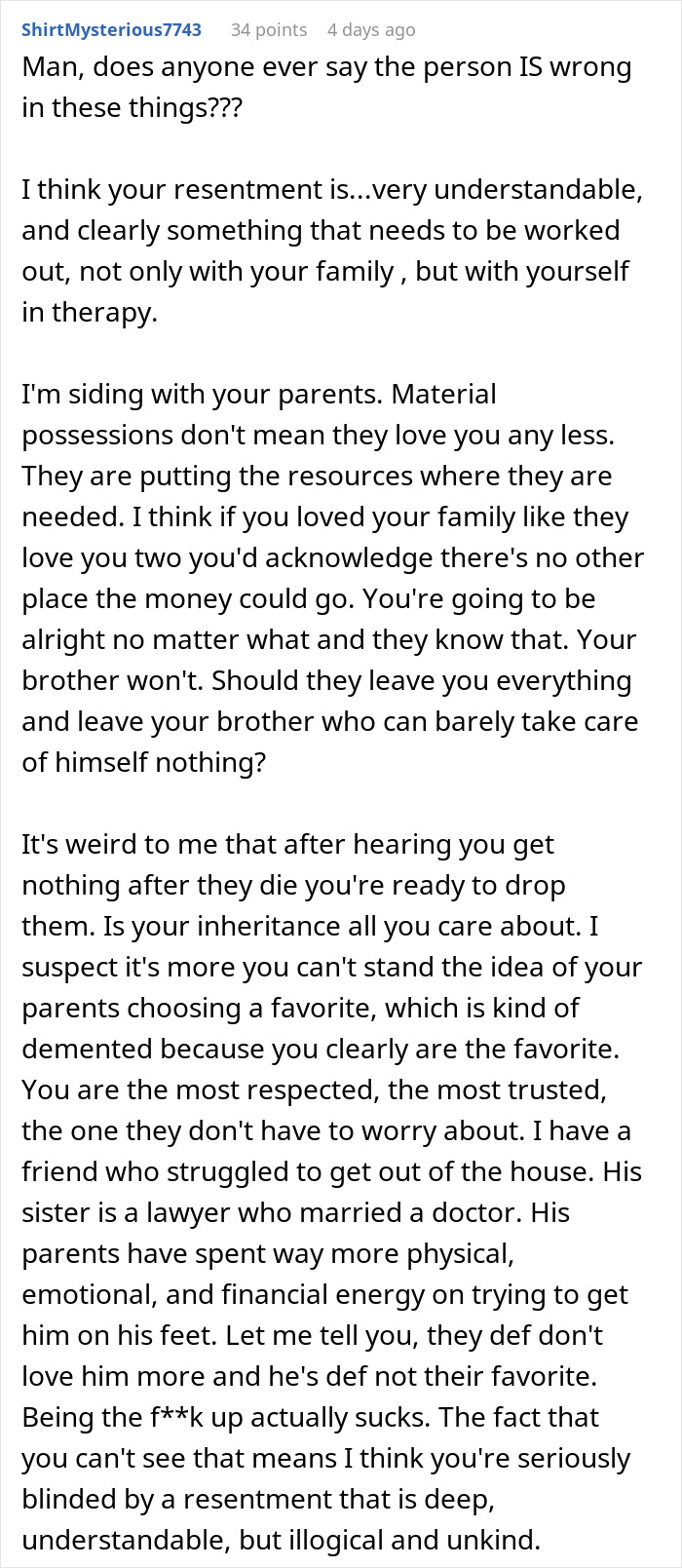
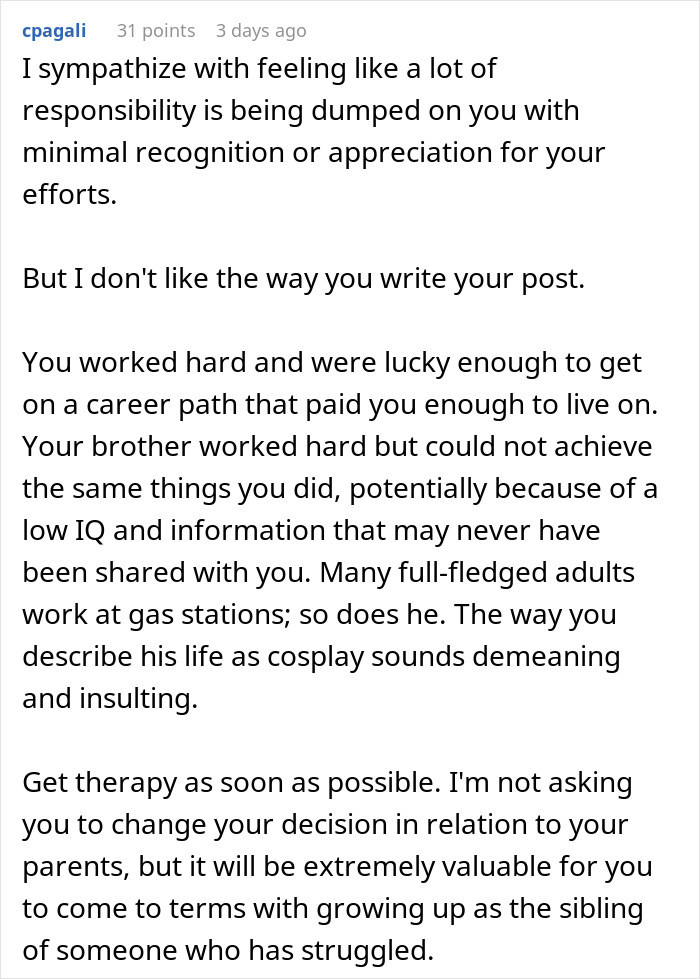
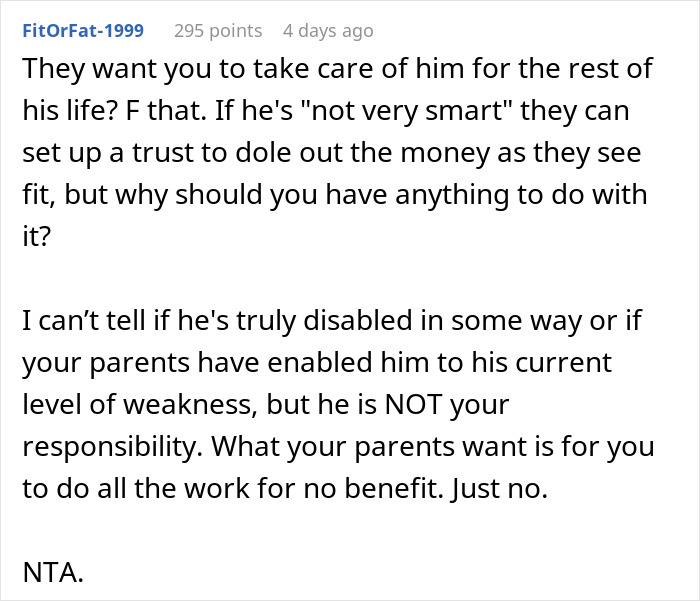

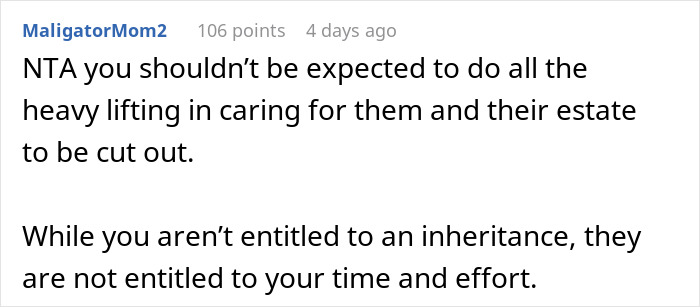
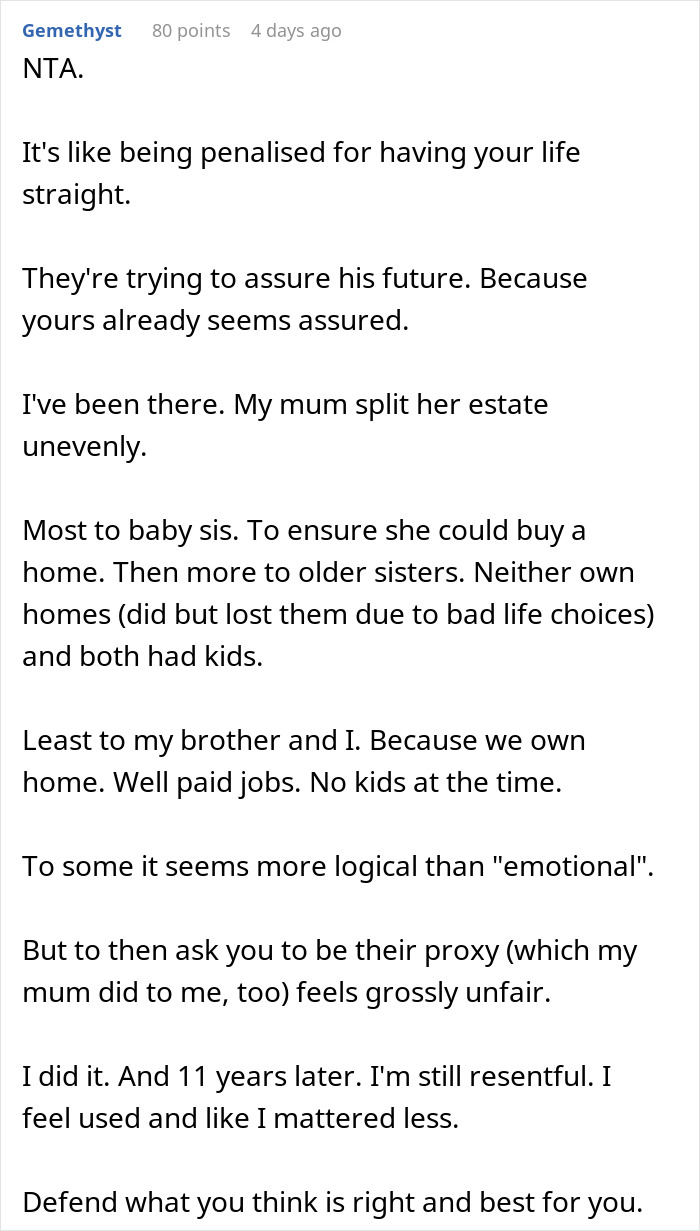
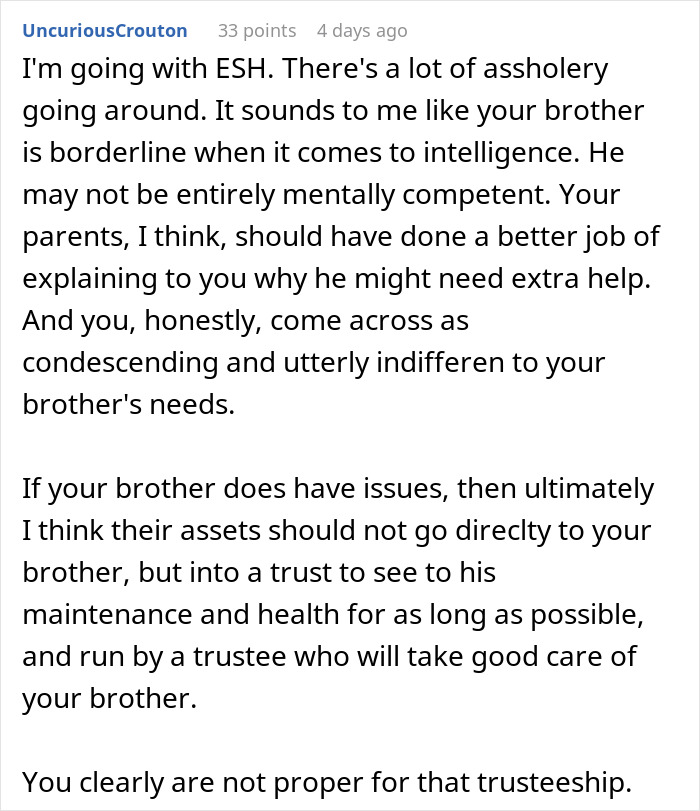

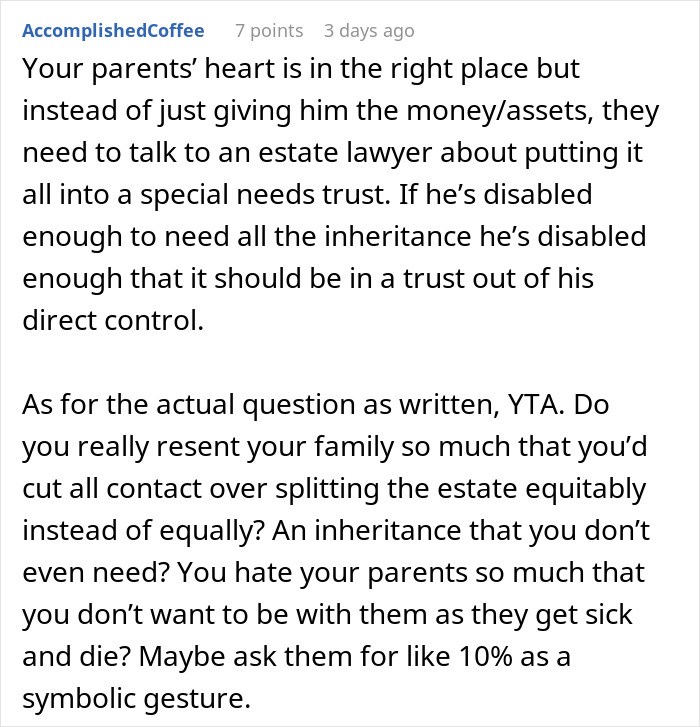
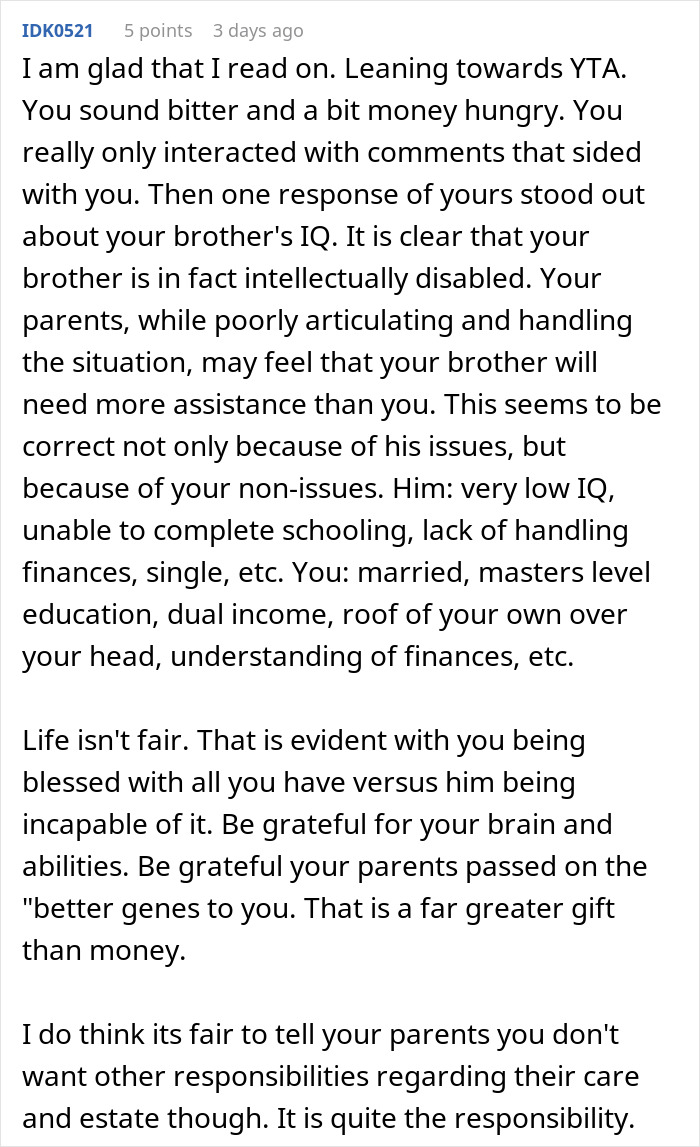
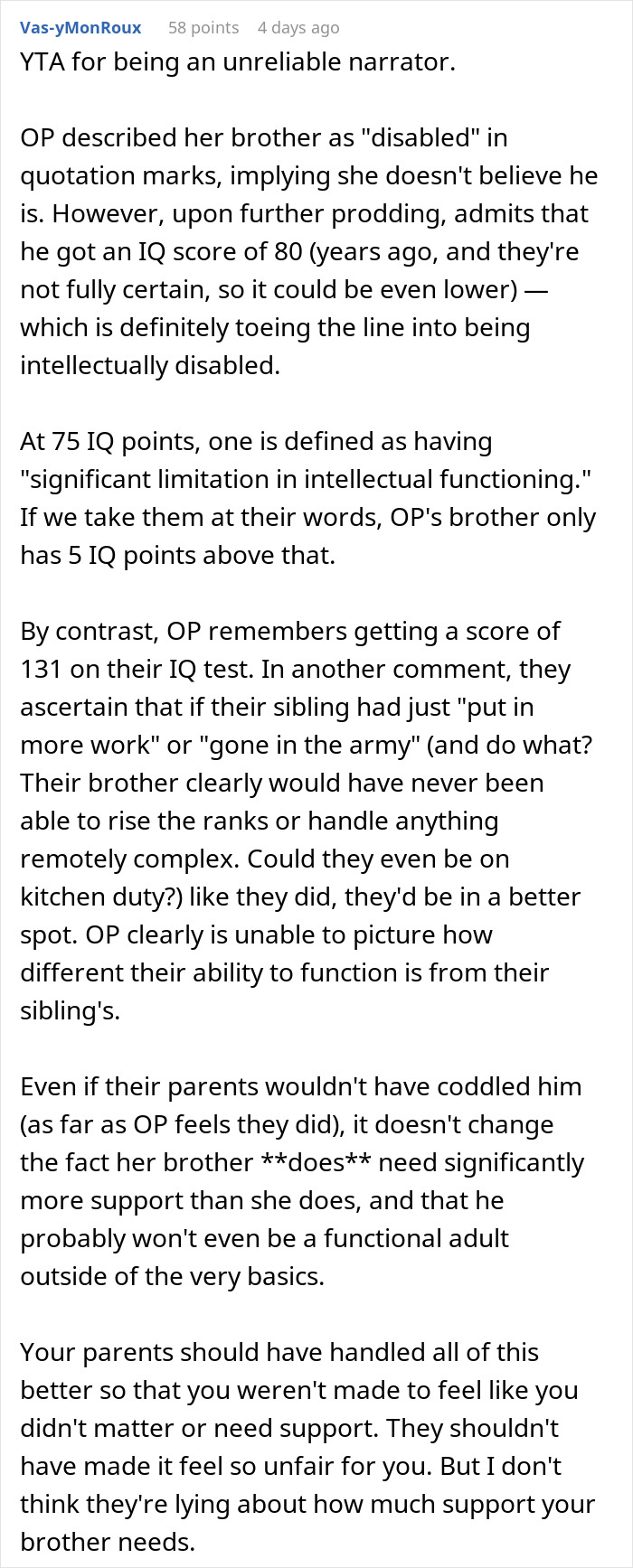
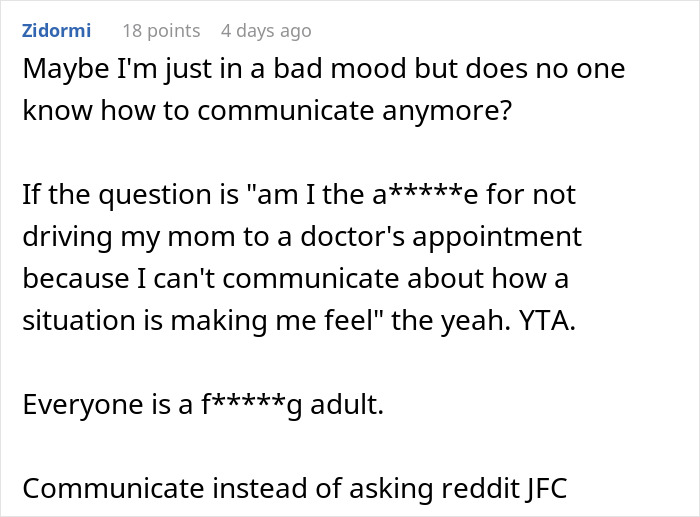

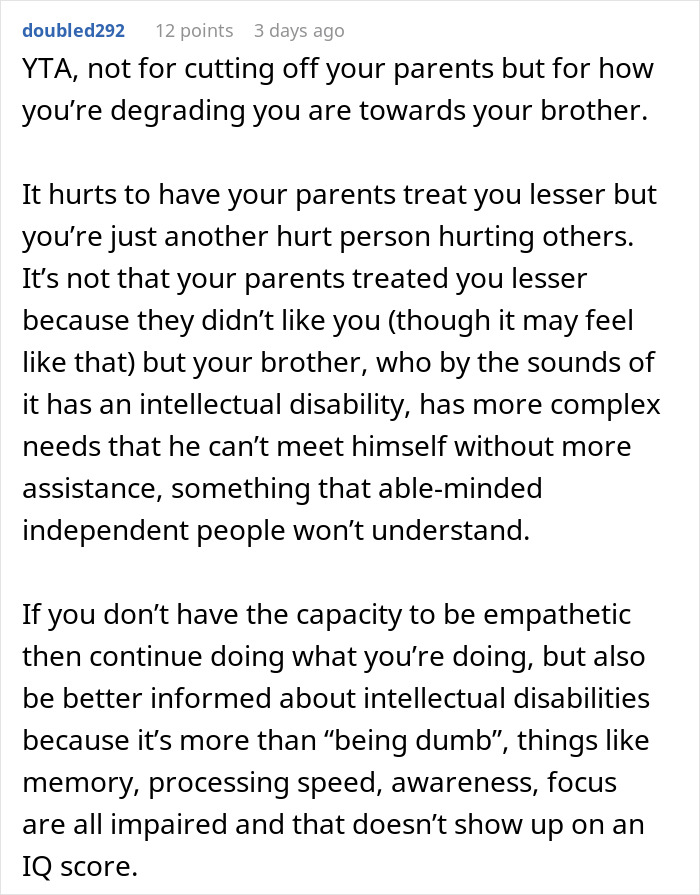

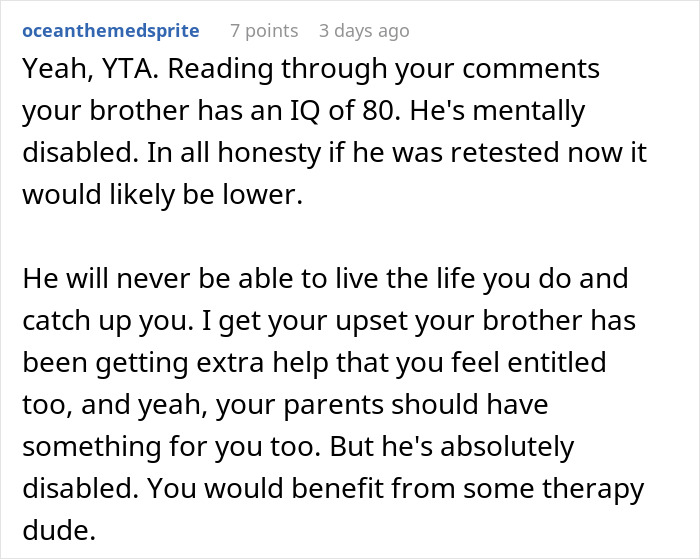

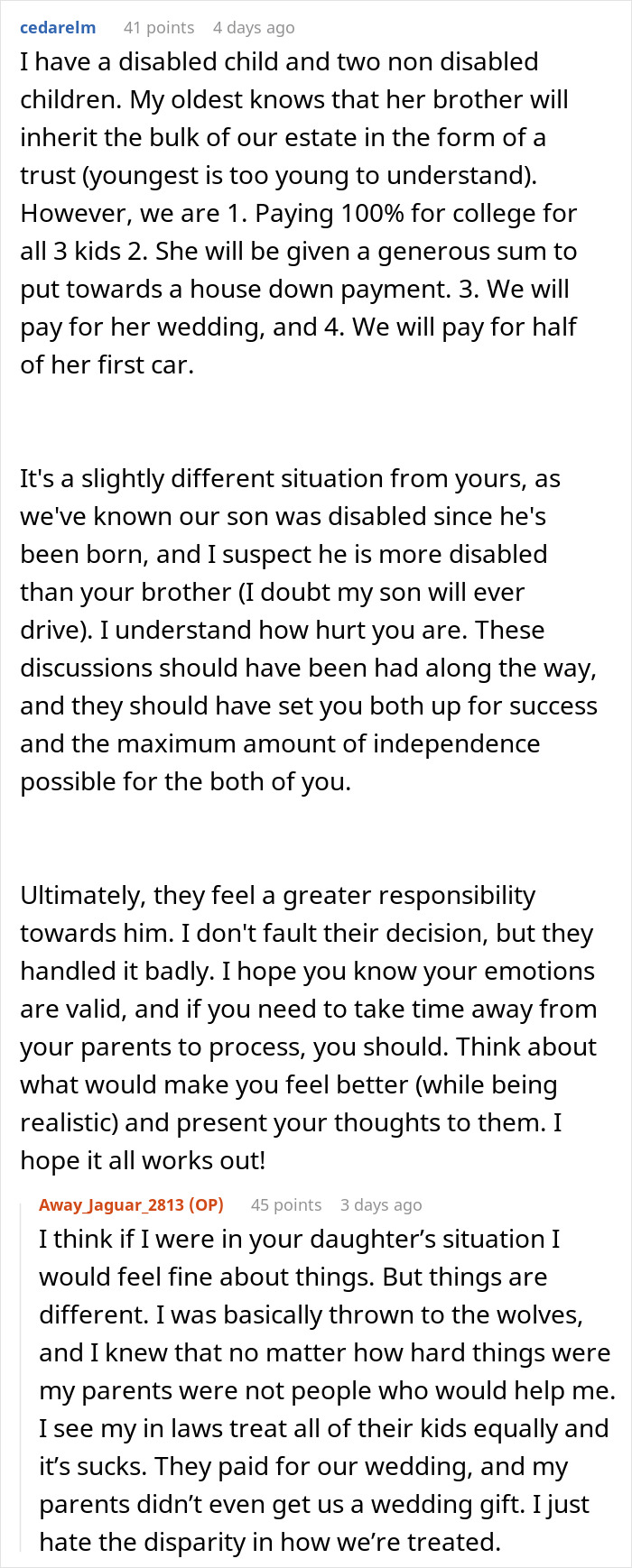











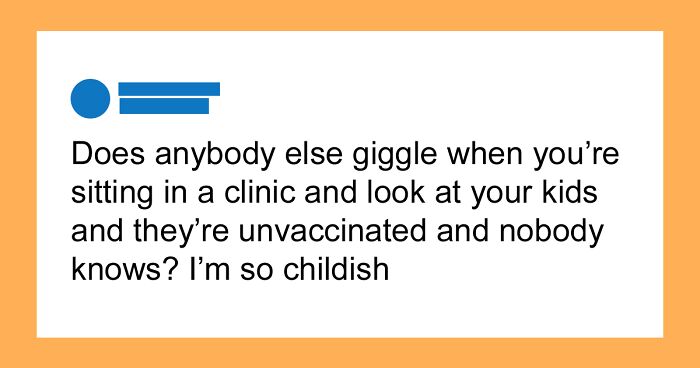




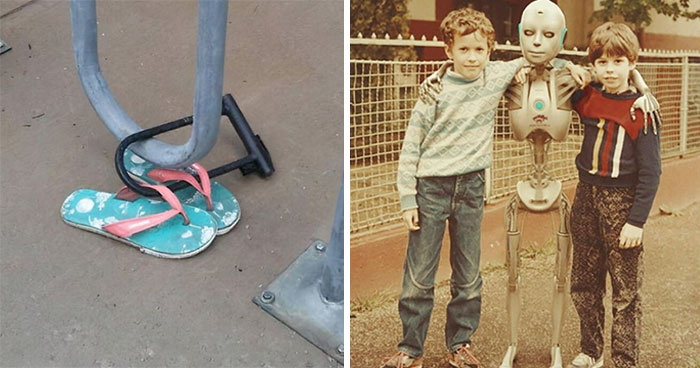




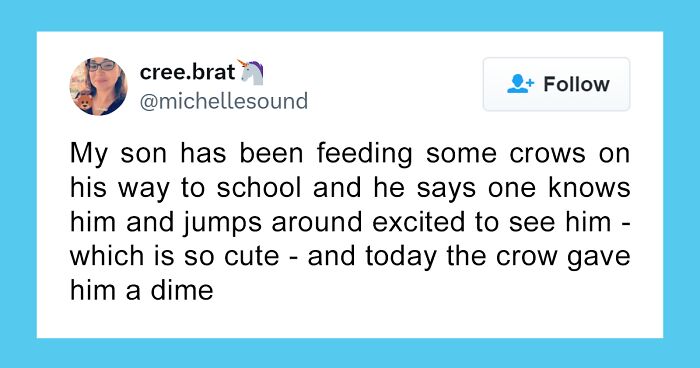
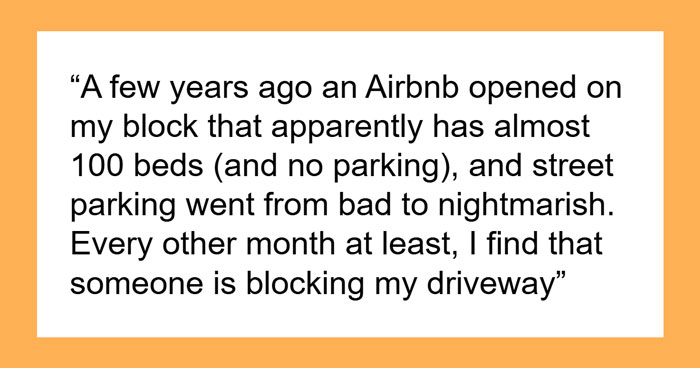

25
11